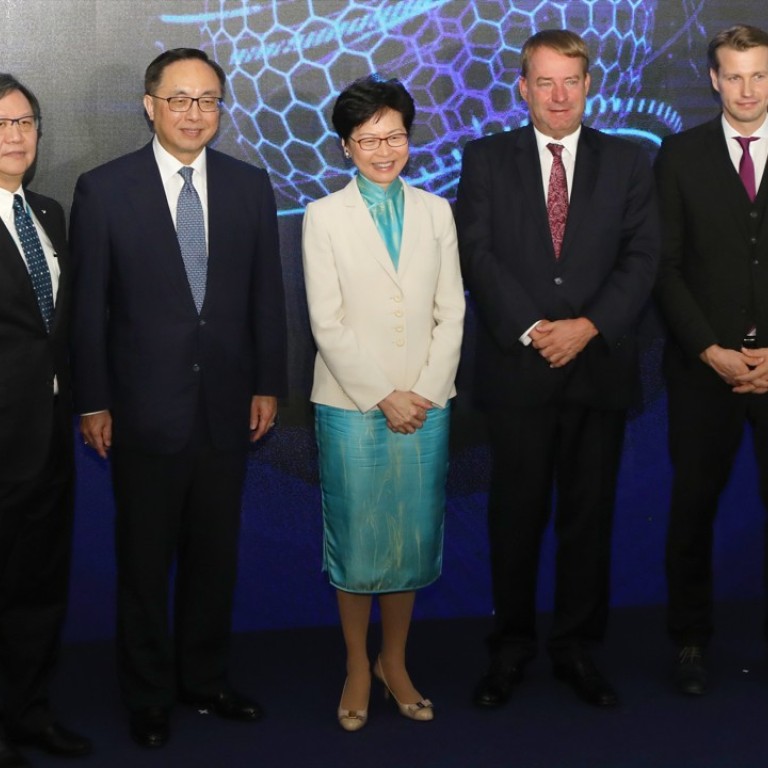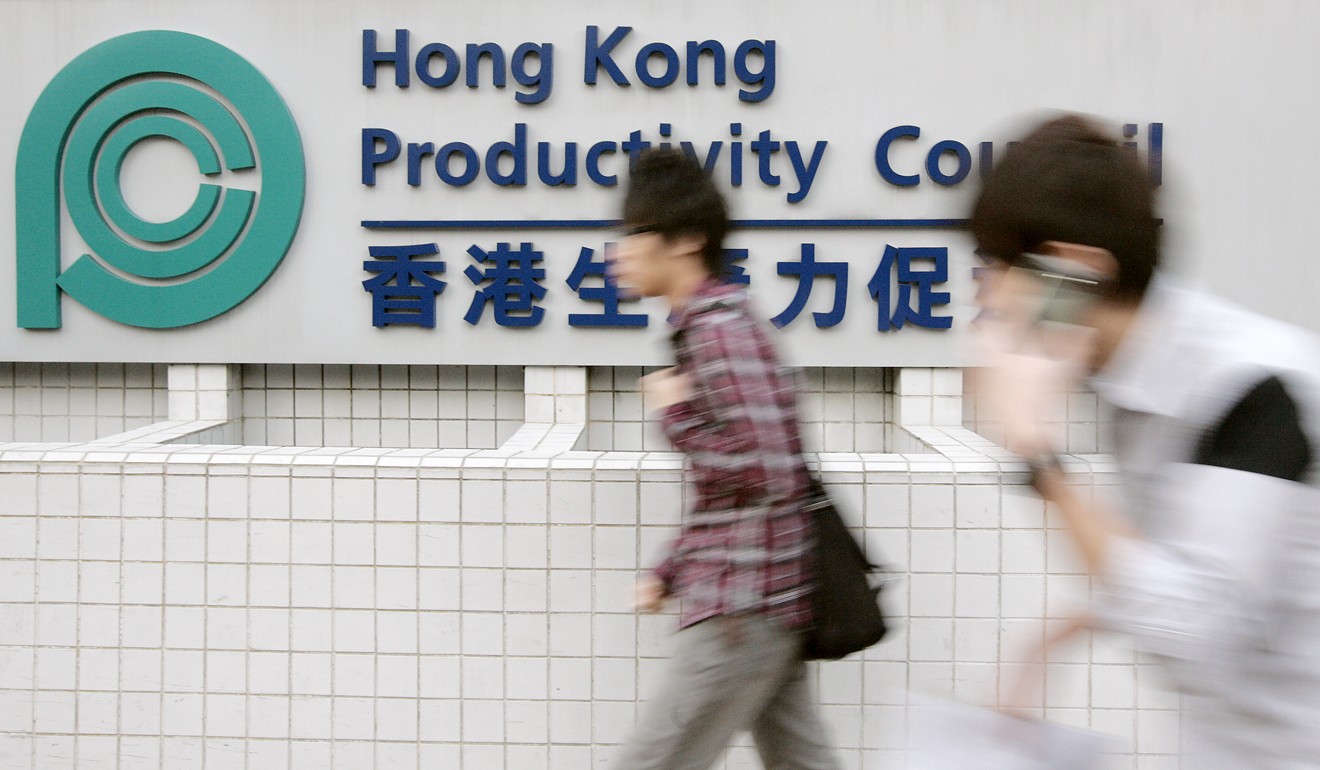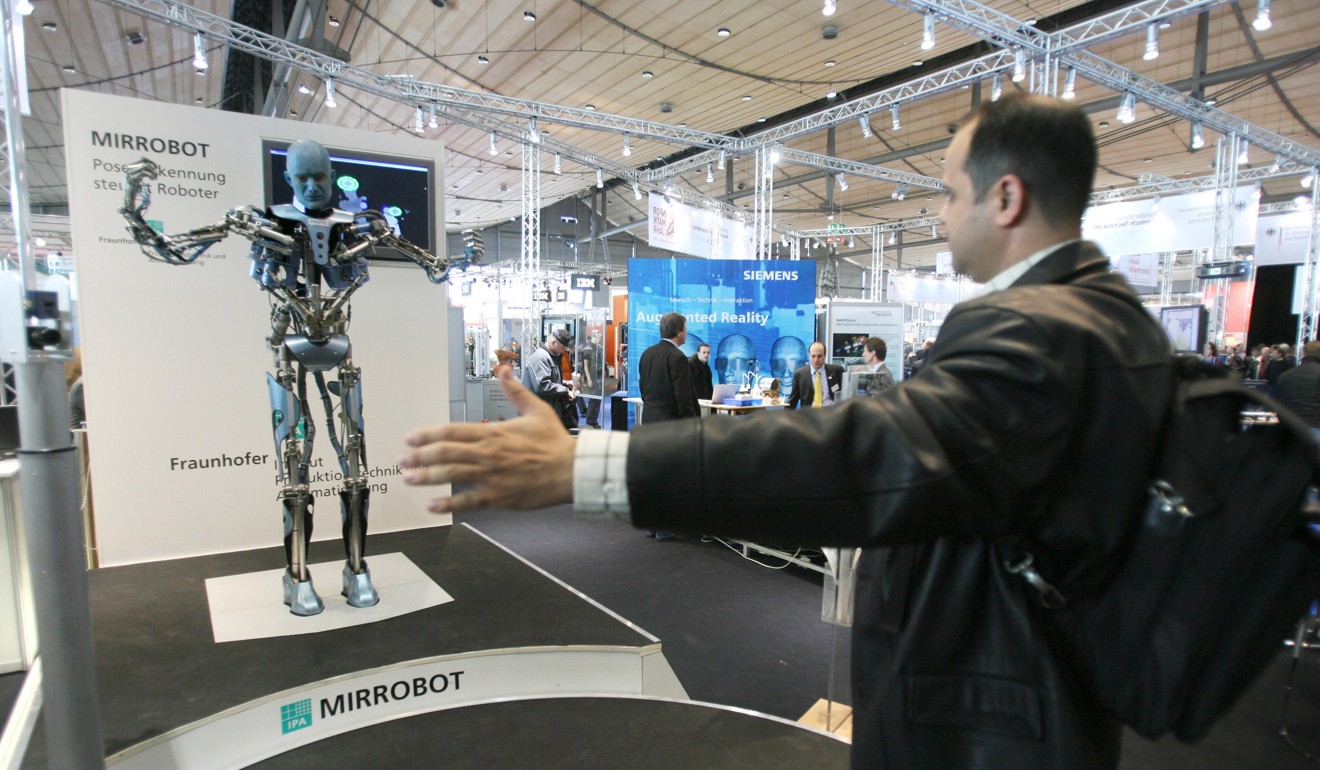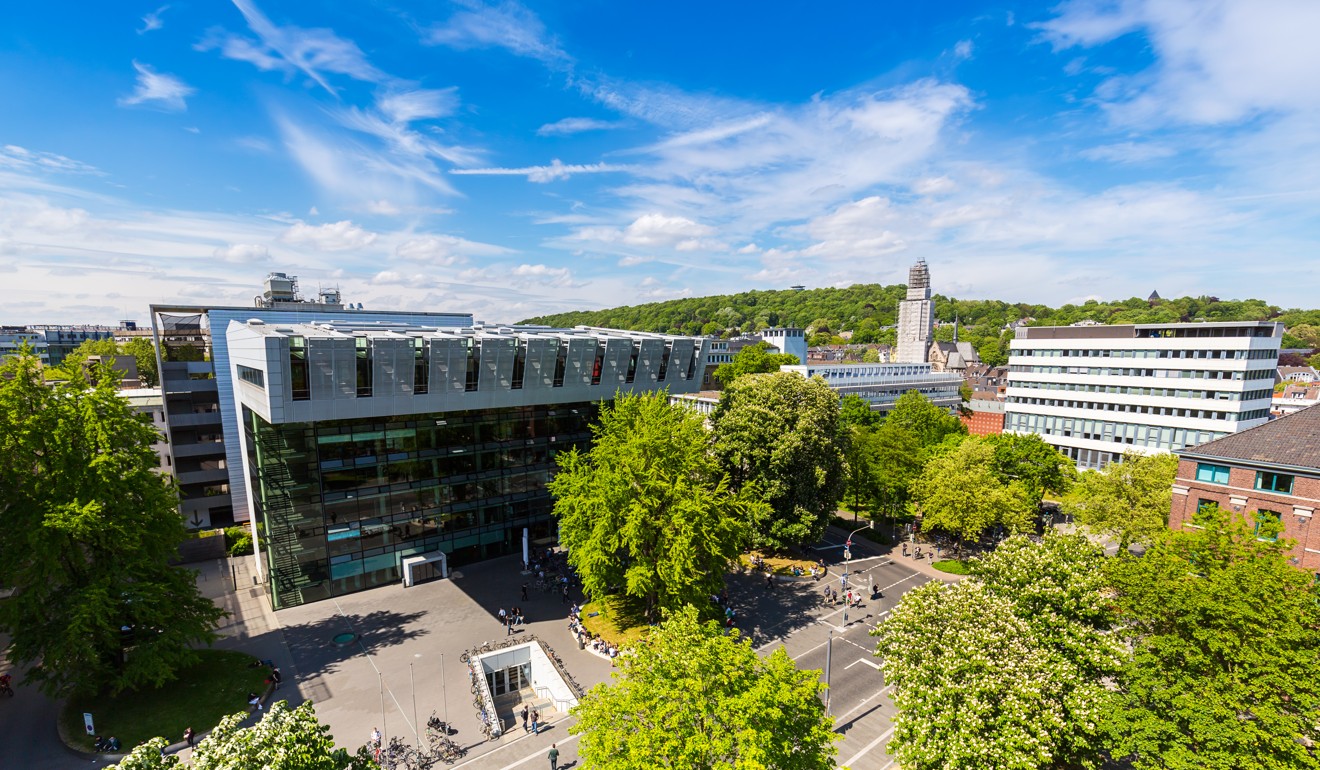
Top German R&D institutes team up with Hong Kong Productivity Council to set up industrial technology centre
Fraunhofer Institute for Production Technology and RWTH Aachen Campus hope to create a springboard for more cooperation with China in IT development
Two top German research and development institutes are embarking on their first overseas venture by opening a new centre to help Hong Kong move up the technology ladder with smart manufacturing.
The Fraunhofer Institute for Production Technology and RWTH Aachen Campus will team up with the government-backed Hong Kong Productivity Council in the venture, and they hope to create a springboard for more cooperation with mainland China in IT development.

The director of Fraunhofer’s Invention Centre, Toni Drescher, said a second centre would be set up at the science park in Sha Tin.
Subsidies to lure young entrepreneurs to ‘Greater Bay Area’
The Loop is the centrepiece of IT-led development in the Greater Bay Area, a mega project spanning Hong Kong, Macau and nine cities in Guangdong province that aims to create an IT powerhouse to rival the San Francisco Bay Area in the United States.
The first phase of the Loop is being built at a cost of HK$20 billion and is expected to be ready in 2023.
The government hopes the Greater Bay Area development will be the key driver of Hong Kong’s economic engine in future.
Drescher said the German institutes will send three scientists to Hong Kong soon. All doctorate degree holders, they will work full time at The Hatch. The team will be expanded to about 10 next year.
Fraunhofer is known for developing the technology for affordable electric vehicles for manufacturer StreetScooter.
Secretary for Innovation and Technology Nicholas Yang Wei-hsiung said the cooperation with the German institutes highlighted the government’s multipronged approach to IT development.
Trade war puts dent in Beijing’s plans for new ‘Silicon Valley’
“They are the best of the best in manufacturing,” he said, referring to Germany.
“The whole idea of re-industrialisation is to move higher up the value chain by leveraging on Hong Kong brand names and our reliability and credibility.”
The centre will provide Hong Kong enterprises the training ground for smart products and service innovation, and has plans to run systematic design thinking workshops elsewhere in Asia.

The council and RWTH Aachen Campus will also carry out R&D in artificial intelligence and robotics.
Most of Hong Kong’s manufacturing activities moved to the Pearl River Delta in the 1980s, but trading and logistics remain one of the city’s four pillar industries. The others are financial services, tourism and professional services.
“Re-industrialisation is not talking about producing plastic flowers again, we are talking about hi-tech products,” Productivity Council executive director Mohamed Butt said at the body’s headquarters, pointing to a prototype smart production line next to him that took up little space and needed only a minimal number of workers.

Another HK$2 billion was earmarked for the science park operator, Hong Kong Science and Technology Parks Corporation, to identify suitable sites in industrial estates for manufacturing facilities.
Federation of Hong Kong Industries chairman Jimmy Kwok Chun-wah said industries such as electronics, precision metals and moulding manufacturers stood to benefit from the city’s re-industrialisation initiatives.

